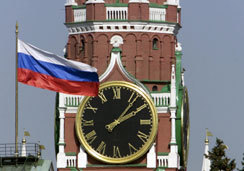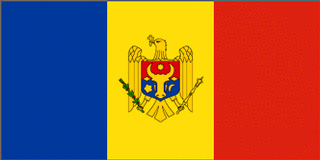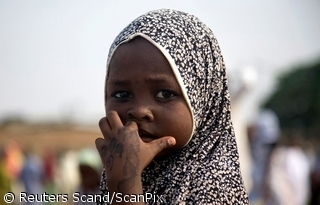For several years the position of Polish exporters on the markets of the former Commonwealth of Independent States has been clearly weakening
Published:
5 May 2003 y., Monday
In order to spur on trade, presentations of Polish exporters are gaining popularity. One such presentation is the Polish National Exhibition in St. Petersburg.
Geographic proximity, relatively small competition from local manufacturers who are not capable of satisfying the growing demand for modern products and, contrary to common belief, the increasingly wealthy and demanding customer, are the advantages of the "eastern market." Why then does trade with the countries of the Commonwealth of Independent States (CIS) constitute as little as 7.1 percent of the global value of Polish export?
The position of Polish companies is weakened by competition from the Western businesses that are perfectly aware of the perspectives which an active and strategically planned entry into Eastern markets can accomplish. Entrepreneurs from Germany, France and the United States, supported by the appropriate funds, first promote and then successfully sell their products in Russia and Ukraine or make direct investments there.
The decrease in the amount of Polish agriculture and food products exported to Eastern markets has stemmed from the fact that big international concerns such as Nestlé, Danone or Unilever directly entered this strategic area. However, the issue of Western competition is only a part of the answer to this question and the possibility of development for Polish exporters on the markets in the former Soviet Union.
One of the most serious difficulties Polish companies encounter is a considerable risk connected with signing commercial contacts with partners from the East who frequently appear to be insolvent and do not honor their contracts. According to Robert Stawski from the Promotion Chamber of the Polish Chamber of Commerce, businesspeople from Russia frequently do not understand the term "advance payment" and sometimes want to pay for the products only after they sell them. For obvious reasons, these terms are hard to accept for Polish manufacturers, which are mostly small and medium-sized companies. The state does not guarantee any protection for companies against situations in which partners from Russia, Belarus or Ukraine do not fulfill the terms of a commercial contract.
Šaltinis:
warsawvoice.pl
Copying, publishing, announcing any information from the News.lt portal without written permission of News.lt editorial office is prohibited.
The most popular articles
 The European Commission approved an application from Spain for assistance from the EU Globalisation Adjustment Fund (EGF).
more »
The European Commission approved an application from Spain for assistance from the EU Globalisation Adjustment Fund (EGF).
more »
 The European Commission today reiterated the potential of existing EU-rules on mediation in cross-border legal disputes, reminding Member States that these measures can only be effective if put in place by Member States at national level.
more »
The European Commission today reiterated the potential of existing EU-rules on mediation in cross-border legal disputes, reminding Member States that these measures can only be effective if put in place by Member States at national level.
more »
 Exports of animals and animal products from the European Union to Russia are expected to receive a boost after five new certificates for exports between the EU and the Russian Federation entered into force on August 15.
more »
Exports of animals and animal products from the European Union to Russia are expected to receive a boost after five new certificates for exports between the EU and the Russian Federation entered into force on August 15.
more »
 World Bank Group President Robert B. Zoellick visited Moldova on August 11-12 at the invitation of Prime Minister Vlad Filat.
more »
World Bank Group President Robert B. Zoellick visited Moldova on August 11-12 at the invitation of Prime Minister Vlad Filat.
more »
 These are the financial results of the banking activities of the Danske Bank Group in Lithuania (Danske Bankas and Danske Lizingas UAB).
more »
These are the financial results of the banking activities of the Danske Bank Group in Lithuania (Danske Bankas and Danske Lizingas UAB).
more »
 The European Investment Bank (EIB) today signed its first loan agreement with Armenia.
more »
The European Investment Bank (EIB) today signed its first loan agreement with Armenia.
more »
 Given the worsening food crisis in the Sahel, the Commission today agreed to disburse €14.9 million for food security in Niger, the worst affected country in the area.
more »
Given the worsening food crisis in the Sahel, the Commission today agreed to disburse €14.9 million for food security in Niger, the worst affected country in the area.
more »
 The European Commission has cleared under the EU Merger Regulation the proposed restructuring of Arnotts' debts in return for a transfer of control to Anglo Irish Bank and Royal Bank of Scotland (RBS).
more »
The European Commission has cleared under the EU Merger Regulation the proposed restructuring of Arnotts' debts in return for a transfer of control to Anglo Irish Bank and Royal Bank of Scotland (RBS).
more »
 The European Commission today approved a new financial support package of €135 million for Morocco.
more »
The European Commission today approved a new financial support package of €135 million for Morocco.
more »
 The European Commission is allocating an extra €10 million in humanitarian aid for Liberia.
more »
The European Commission is allocating an extra €10 million in humanitarian aid for Liberia.
more »